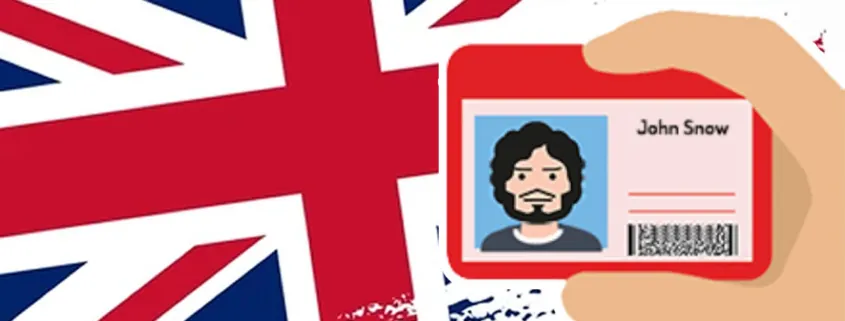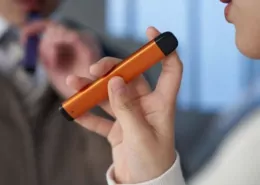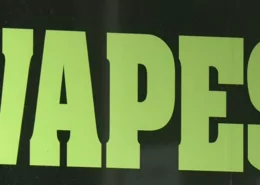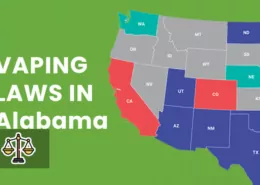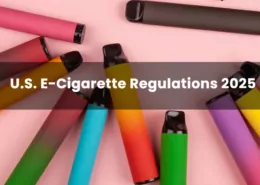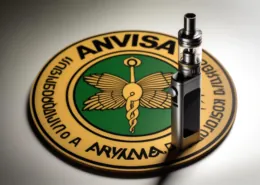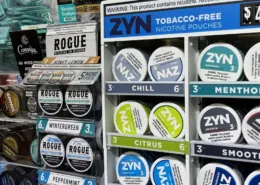Compliance Guide of UK Vape Age Verification
As the vaping industry continues to flourish in the United Kingdom, it is crucial for businesses to understand and adhere to the strict age verification regulations set forth by the government. The primary objective of these laws is to prevent the sale of nicotine-containing vaping products to individuals under the age of 18. Failure to comply with these regulations can result in severe consequences, including substantial fines and legal action.
Navigating the complex landscape of vape age verification in the UK is essential for both retailers and consumers. At Ecigator, we aim to provide clear guidance on these requirements and offer practical solutions to ensure compliance, protect public health, and prevent the sale of vaping products to minors.
The UK Vape Age Verification Rules
The legal age for purchasing vaping products in the UK is 18 years old, which aligns with the regulations for tobacco products. Vape retailers must implement robust age verification methods to ensure compliance with this law. Repeated underage sales can lead to fines of up to £2,500, emphasizing the importance of diligence in this matter.
It is essential to note that there are subtle variations in the regulations across the four nations of the United Kingdom:
- Northern Ireland: The age limit is 18, and proxy purchasing is also an offense. Retailers can be held responsible for underage sales, facing fines of up to £2,500.
- England and Wales: It is illegal to sell vape products to anyone under 18, with an exception for nicotine vapor products licensed as medicines or medical devices. Adults who purchase or attempt to purchase these products on behalf of minors commit an offense known as “proxy purchasing.”
- Scotland: In addition to the age restriction, it is illegal for staff under 18 to make a sale without written authorization. Businesses must have an age verification policy in place, and selling vape products via vending machines is prohibited. Furthermore, Scottish retailers must register their business on the Nicotine Vapour Products Register.
The Importance of Age Verification
Enforcing age verification is not merely a legal obligation; it demonstrates a commitment to public health. The highly addictive nature of nicotine, as evidenced by medical research, underlies its classification as a prohibited substance for minors. By restricting access to vaping products at the point of sale, retailers play a vital role in reducing their availability to young people.
Moreover, the vaping industry bears the responsibility of preventing irresponsible retailing practices and ensuring that vaping remains an adult-only activity. The confidence of policymakers, politicians, and consumers in the industry as a responsible sector hinges on businesses consistently implementing and upholding stringent age verification processes.
Effective Age Verification Methods
Vape retailers employ a range of methods to verify the age of their customers, both in online and in-store settings. Let’s explore these methods in more detail:

Online Age Verification
For online transactions, companies frequently utilize third-party systems like 1account, which cross-reference customer information against multiple databases to validate their age. The process works as follows:
- When a customer enters their billing details during checkout, the age verification system cross-references these details against publicly available information, such as the electoral register, to confirm that the user is over 18.
- Some age verification services also allow customers to verify their age using their banking app, facial recognition on their smartphone, or by uploading an ID, which is done securely using encryption to protect personal information and prevent data sharing.
- If the verification process is successful, the purchase is allowed. If unsuccessful, the order is placed on hold, and the company contacts the customer to request additional identification before dispatching the order. If age verification cannot be completed, the order is refused or refunded.
It is essential to ensure that the chosen age verification system has been developed and certified in accordance with PAS 1296:2018 – Code of Practice for Online Age Verification.
In-Store Age Verification
In-store age verification typically involves checking photo IDs and implementing policies like “Challenge 25,” where anyone who appears to be under 25 years old is asked to present identification. Here are some key points to consider:
- Staff should be trained to assess whether customers look 25 years old. If the answer is no, they should request valid proof of age.
- Valid forms of identification include passports, photo driving licenses, and Proof of Age Standards Scheme (PASS) approved cards.
- Military ID cards can also be accepted, but retailers should familiarize themselves with the different types of cards used in their area.
- When presented with foreign passports or national identity cards, retailers should look for distinguishing features such as watermarks, ultraviolet fluorescent ink, and intricate background designs.
Retailers must clearly communicate their age verification policies to customers through prominent signage in-store, displaying their commitment to the Challenge 25 policy.
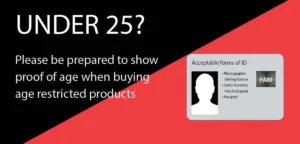
Biometric Age Verification
Advanced biometric systems, such as facial recognition scanners, have shown high accuracy in estimating customer age, providing an extra layer of security. These systems have been found to underestimate age by an average of just 0.19 years, ensuring effective age compliance.
Some key points to consider when implementing biometric age verification:
- Ensure that the system is integrated seamlessly with your point-of-sale system.
- Train staff to use the technology effectively and understand its limitations.
- Be transparent with customers about the use of biometric data and ensure that their privacy is protected.
MyCheckr, from Innovative Technology, is a stand-alone solution ideal for retailers selling age restricted goods such as vapes. Already being utilised in a number of convenience stores it is equipped with a camera and a screen that predicts a customer’s age quickly and completely anonymously.
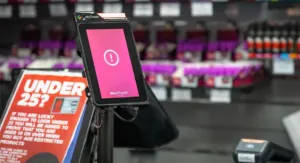
Digital Age Verification
Digital age verification is becoming increasingly popular, particularly for online sales. This method allows customers to prove their age using digital means, such as:
- Using their banking app to confirm their identity
- Utilizing facial recognition on their smartphone
- Uploading a digital version of their ID
Before implementing a digital age verification system, retailers should ensure that it has been developed and certified in accordance with PAS 1296:2018 – Code of Practice for Online Age Verification. It is important to note that digital age verification is not currently permitted for sales of vape products in Scotland.

FDA present the “This Is Our Watch” digital age verification calendar helps you determine if a customer is old enough to legally purchase tobacco products in your store. You can program the calendar to display the exact date a customer must have been born on or before to buy tobacco products. This video tutorial will walk through the process of setting up the digital age verification calendar.
Regardless of the age verification method used, it is crucial that retailers train their staff to handle the process effectively and keep detailed records to demonstrate compliance with regulations.
Overcoming Vape Age Verification Challenges
Despite the various age verification methods available, challenges persist in ensuring complete compliance. Let’s explore some of these challenges and the ways in which vape retailers can overcome them:

Fake IDs and Misidentification
One of the most significant challenges in age verification is the use of fake IDs and misidentification. Some underage purchasers find ways to bypass checks, such as using high-quality fake IDs that closely resemble legitimate forms of identification, presenting someone else’s valid ID as their own, or altering their own legitimate ID to appear older.
To combat this issue, retailers should:
- Train staff to carefully examine IDs for signs of tampering or inconsistencies
- Utilize advanced technology, such as ID scanners, that can detect fake or altered IDs
- Implement biometric age verification systems, which are more difficult to fool than traditional ID checks
Human Error and Inconsistency
Another challenge in age verification is the potential for human error and inconsistency. Even well-trained staff members may occasionally make mistakes or fail to follow proper procedures.
To minimize these occurrences, retailers can provide regular training and refresher courses to ensure that all staff members are up-to-date on age verification policies and procedures. Implementing a system of checks and balances, such as requiring a second staff member to verify age if there is any uncertainty, can also help. Additionally, using technology to support and enhance human judgment, such as point-of-sale systems that prompt staff to verify age for restricted products, can further reduce errors.
Proxy Purchasing
Proxy purchasing, where an adult buys vaping products on behalf of a minor, is another challenge that retailers must address. To tackle this issue, staff should be trained to recognize signs of potential proxy purchases, such as:
- An adult asking a minor about their preferred vaping products
- Minors loitering outside the store or acting as though the purchased product is for them
- A regular customer suddenly purchasing products that are popular among younger people
If staff members suspect a proxy purchase, they should refuse the sale and explain the legal implications of proxy purchasing to the customer.
Ensuring Compliance Through Record-Keeping and Audits
To demonstrate compliance with age verification regulations, vape retailers must maintain detailed records and conduct regular audits. This includes:
- Keeping a comprehensive age verification policy document on file, easily accessible to all staff members
- Maintaining records of staff training, including dates, content covered, and staff signatures
- Recording all refusals of sale in a dedicated refusals book, including the date, time, and reason for refusal
- Conducting regular internal audits to ensure that all staff members are following proper age verification procedures
- Participating in external audits, such as mystery shopper programs, to assess compliance from an objective perspective
By addressing these challenges head-on and maintaining meticulous records, vape retailers can demonstrate their commitment to responsible retailing and protect themselves from legal and reputational risks.

ECIGATOR
Ecigator is one of the well-known vape brands spun off from FM Technology Co., Ltd, it’s an ISO-certified disposable vape manufacturer for OEMs, ODMs, and OBM since 2010. The founder team comes from top firms with more than 10 years of experience in the vaping industry and has devoted thousands of hours to providing users with a better and better experience.
Staying Up-to-Date with Industry Best Practices
As the vaping industry continues to evolve, so too do the best practices for age verification. To ensure ongoing compliance, retailers should stay informed about changes in legislation and regulations related to age verification. Participating in industry associations and events to learn about new technologies and strategies for age verification can also be beneficial. Sharing knowledge and experiences with other retailers to identify common challenges and solutions and continuously assessing and improving their age verification processes based on feedback from staff, customers, and regulatory bodies can help retailers stay at the forefront of responsible retailing practices.
By proactively addressing challenges and staying informed about industry best practices, vape retailers can navigate the complexities of age verification with confidence and ensure a safe, responsible, and compliant retail environment.
Conclusion
Navigating the complexities of vape age verification in the UK is crucial for ensuring compliance and protecting public health. By understanding the legal requirements, implementing effective verification methods, and continuously adapting to overcome challenges, vape retailers can prevent vaping products from falling into the hands of minors.
As the vaping industry continues to evolve, retailers must remain proactive and dedicated to upholding robust age verification processes. In doing so, they not only safeguard the well-being of young people but also contribute to the responsible growth and reputation of the vaping sector. By providing industry professionals with the knowledge and tools necessary to navigate these regulations, we can work together to create a safer and more compliant vaping landscape in the United Kingdom.
- Spain Plans to Ban Smoking and Vaping on All Terraces by 2027 - August 7, 2025
- Maldives Issues MVR 127,000 in Vape-Related Fines in July - August 7, 2025
- Alabama Lawmaker Proposes Ban on Vaping in Public Places - August 7, 2025

